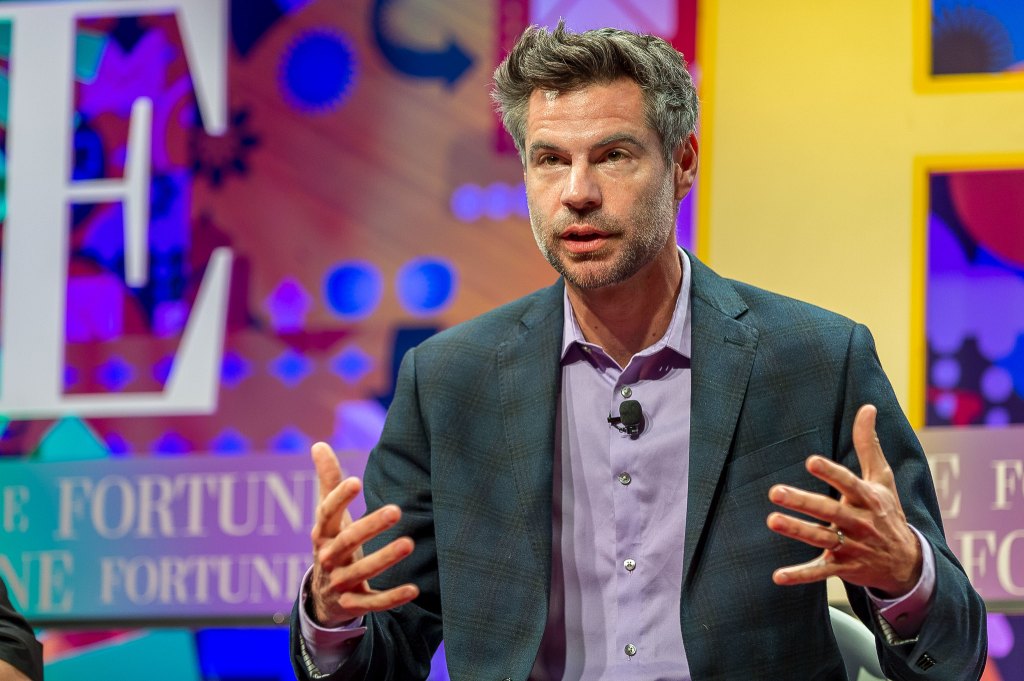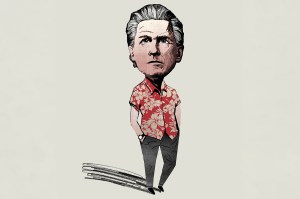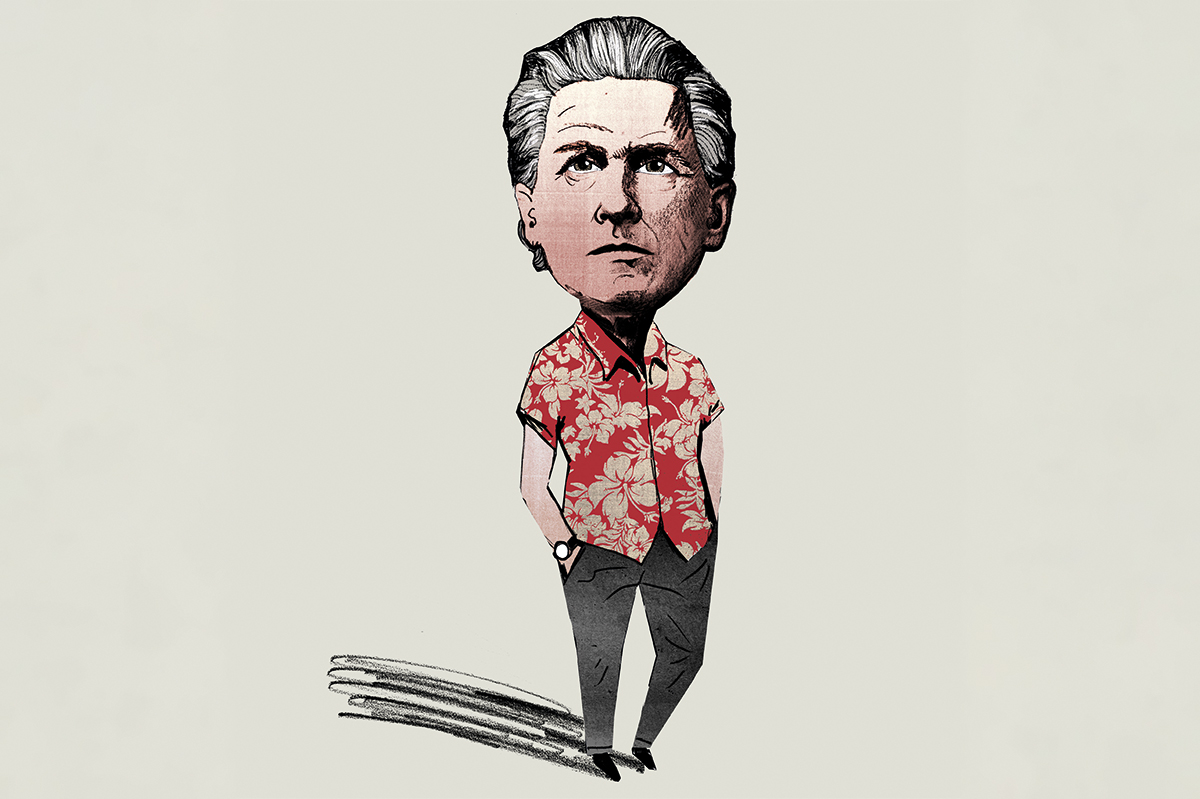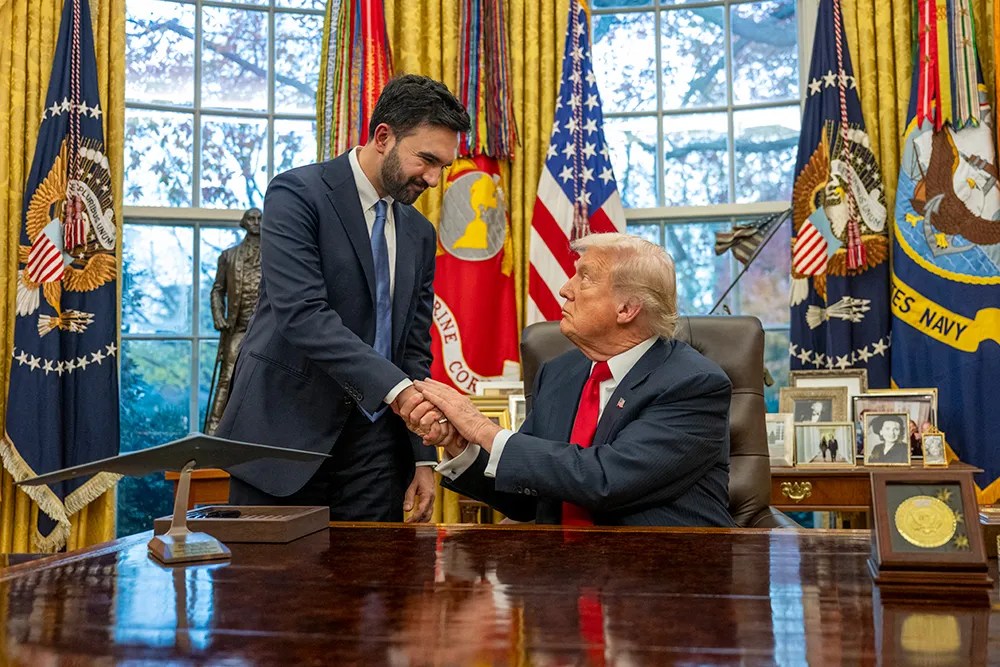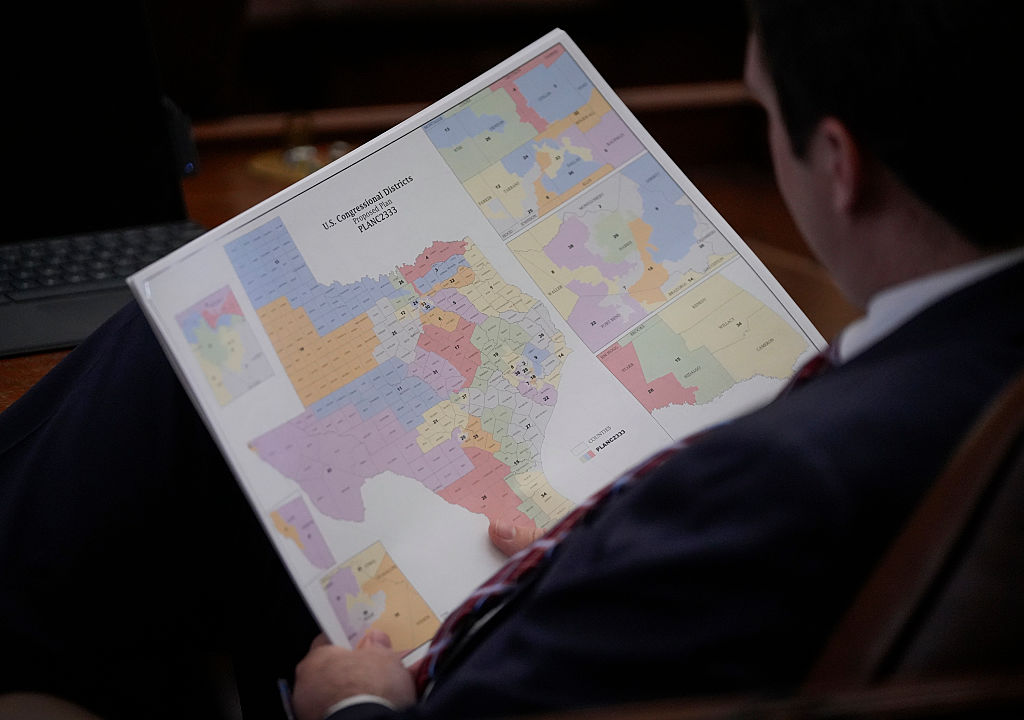Michael Shellenberger is an unusual political candidate. He’s also arguably the only person with a chance of stopping Gavin Newsom from spending four more years as governor of California.
A fifty-year-old environmentalist, Shellenberger is a former Democrat running for governor as an independent. And he has form when it comes to aiming leftwards. A self-styled ecomodernist, he has been a vociferous critic of the environmentalist movement, its insularity, economic illiteracy and fetish for scarcity. More recently, he has set his sights on the progressive approach to homelessness and addiction. In San Fransicko, a book published last year (read an extract we published in The Spectator here), Shellenberger details progressivism’s culpability for the homelessness and addiction crises that now dominate the streets of the city he has called home for thirty years.
It’s easy to dismiss Shellenberger’s bid for governor as a Quixotic nonstarter. Only last year, Newsom won a handy victory in a recall election. In that race, Larry Elder — a resolutely conservative Los Angeles talk show host — emerged as Newsom’s main opponent. After an uneasy start to the campaign, the incumbent fended off the threat by painting Elder as a Trump clone at odds with the values of a state where registered Democrats outnumber Republicans two to one. Voters were told, ad nauseam, to oppose the “Republican recall.”
Shellenberger is, among other things, not a Republican, and therefore sidesteps Newsom’s lazy if effective go-to defense. And that, if nothing else, would make him a threatening opponent against Newsom in the general. First, though, he must make it through next week’s open primary and place in the top two ahead of the leading Republican candidate, Brian Dahle. In other words, before he can tackle what he sees as a vulnerable incumbent, he must leapfrog a California GOP that is a shadow of its former self. If he does that, what looked like a foregone conclusion of a re-election bid for Newsom will become something else: a test of what, if anything, can break the Democrats’ stranglehold on California politics. That might mean a tighter race. At the very least, it’ll mean a race worth watching.
I recently spoke to Shellenberger about his candidacy, the hyper-progressivism that he argues is destroying the state he loves and why the moderate middle don’t get the representation they deserve. Below is a transcript of our conversation edited for clarity and length.
Why are you running for governor?
I’m running because I’m completely heartbroken by the humanitarian disaster on the streets. I think what’s occurring is immoral, unnecessary and a violation of basic human rights and human dignity. Young women with mental illness and drug addiction are being raped and killed. It’s completely unacceptable. Our cities are being destroyed and we’re destroying human life. I find the situation appalling and it makes me angry that the politicians have not just created this problem but made it worse and they’re continuing to make it worse, which scares me.
But I’m also inspired by California’s potential. I’m in love with the state. I moved here after college. It’s the greatest state in the greatest country in the world. Or at least it should be, or used to be. I really believe in human potential. That means we believe that people suffering mental illness or drug addiction can lead better lives, they can realize their potential. They don’t just need palliative care. They don’t just need to be treated like vegetables and fed methamphetamine and fentanyl every day as though they’re animals. That is what the policy of this state is. It’s what the agenda of our governor is. It’s appalling and sickening and it doesn’t need to be like that.
In late January I gave a speech in San Francisco. The mothers of homeless drug addicts were there. They’re my allies in a coalition that we’ve organized. They asked me if I would run and I said no. We all went out and had dinner afterwards and my wife spoke with them. The next morning Helen said she would support me running if there was support. I was then able to meet with several folks who assured me that there would be support for my run and I then decided to get into the race. The good news is that underdogs win when they are faster than their opponents and so we’ve moved quickly. We have this incredible team. The strategy is to build a movement and to document the depravity on the streets, first and foremost. And to offer a really comprehensive vision of how to solve the problem.
When it comes to the homelessness problem, where have things gone wrong? And what needs to be done?
The first thing is that they don’t enforce laws. They don’t enforce laws against people that they consider victims, which includes addicts and the mentally ill. And if you don’t enforce laws it turns out people don’t follow them and you don’t have functioning civilization. The second is that they have pursued a radical de-incarceration, de-policing and decriminalization agenda, which has removed penalties for many laws, including shoplifting $950 worth of goods, or possessing three grams of fentanyl and meth, enough to produce paranoid psychosis. And they’ve pursued a so-called housing first anti-shelter policy. So they’ve defunded the shelters. The governor himself has established that housing should be a right. That anybody who comes to San Francisco or Los Angeles should have their own apartment unit in those cities. That is the state policy. It is so ridiculous. It is shocking to even say that that is what the policy is, but that is what it is.
What we need is pretty straightforward. We need to enforce laws. We need a shelter-first housing-earned policy and you need statewide psychiatric and addiction care like they have in every civilized country.
We’re reviving people from overdose six, nine, twelve times and then sending them right back onto the streets to smoke more fentanyl. It’s bonkers. Fifty percent to 75 percent of all fires put out by the San Francisco and Los Angeles fire departments are in homeless encampments. My own research, and the research of others, shows that most of these are arson fires, people just getting back at each other. So we’re spending colossal sums of money to create chaos.
It’s easy for people to look at the situation and think that it’s a consequence of poverty. It’s a consequence of spending our wealth to create chaos. We’re actively creating a humanitarian disaster. It’s not the result of lack of resources, it’s the result of how we are spending our abundant resources. We spend more money than any other state on mental illness. We spend more money on homelessness than any other state per capita. And we have the worst outcomes and we make the problem worse.
There was a recall race last year which failed. The main candidate was Larry Elder, a conservative Republican. I wondered what lessons you’re taking from the recall, what lessons anyone interested in viable political opposition in California politics should take from the recall and how that is informing your bid this time.
First lesson: the Republican brand in California is toxic and the Republican Party is effectively dead and irrelevant. A Republican cannot be elected governor of California. The brand is too toxic for a very liberal public.
The second issue is that nominating a Trump clone, Larry Elder, to shake up the system is not going to shake up the system. And none of the Republicans including my guy [former San Diego mayor Kevin Falconer], who was closer to me than anybody, had a proper vision of how to solve the biggest problem in the state, the so-called homelessness crisis, which is really an untreated mental illness and addiction crisis.
The Republicans were not prepared. They did not think through how to think through what the most important issue in the state was. At bottom, you need somebody who has a vision to deal with the state’s problems. My current Republican opponent seems like a very nice guy, and I’m sure he would have been a fine governor in the nineteenth century, when we were just a ranching and farming state with some gold mining. But we’ve got twenty-first century problems.
I mean, we have all the problems that everybody else in the developed world has but now we have problems of the developing world too. We have the worst drug and homelessness crisis, but we also have underperforming schools. You need to have someone with a vision and an agenda that is evidence-based and also commonsense to deal with those problems. And Republicans didn’t deliver that. Republicans took away from that election that there is no alternative to the radical woke left in California, but that’s not true.
Californians are liberal but the vast majority are not radical woke left. We rejected twice racial preferences in higher education. We rejected that twice. We don’t want racial preferences. There might be some room for affirmative action. We love racial diversity. And we support that but we don’t like these racial preferences. Similarly, we rejected this effort to destroy the gig economy and turn all the Uber workers into employees rather than contractors. So if you actually look at our views, we’re much more moderate than the extreme radical woke left which has taken over Gavin Newsom’s brain, and we’re much more moderate than the Trump Republicans.
So I think there’s a huge amount of room. Sixty to 70 percent of the public, maybe more, are with us on our agenda. When we poll our core agenda on drugs, crime and homelessness, we get 70 to 80 percent support from voters. But nobody offered that in the recall.
Other people I’ve spoken to about challenging the Democrats’ monopoly in California politics say the problem is that the state hasn’t hit rock bottom yet. And that when it does, things will change. Has the state hit rock bottom? And why has such a radical version of liberalism been so dominant?
Nobody’s offered a moderate agenda. I mean, I agree with the metaphor of hitting bottom. I think it is correct when it comes to dealing with addiction. But what people forget is that the bottom is not set. The bottom can be raised or lowered. What California has done is lowered the bottom. So you can be living in a tent in your own excrement and filth and overdosing on the most toxic, dangerous, deadly drugs in the world. And you will not be arrested. You will not be mandated treatment. That is lowering the bottom. That’s called enabling, or lowering the bottom. You can raise the bottom. You can say that’s not okay to camp and defecate and use drugs in public and if you do that we’re going to arrest you. And you can either go to jail or you can go to rehab. This is not nuclear science. That’s hard. This is carrots and sticks. This is tough love. This is consequences for behavior and rewards for behavior.
So I don’t think it’s a question of things needing to get worse. I don’t think things could ever get bad enough for people to want a Trump clone as their candidate. I just don’t think that is how it works. And I also think things didn’t have to get this bad. You just need somebody offering a reasonable alternative.
Broadening things out, is there a common thread when you look at mistakes and failures of government in California? What unites the mistakes in a wide range of areas, from homelessness to energy to housing?
The theme is that California has put a radical woke ideology before common sense. That’s the theme. And another theme is that we’re kind of a Peter Pan state. We don’t want to grow up. It’s why we love it here too. It’s a libertarian culture. California is like the most American of all American states. We’re libertarian, we love our freedom, there’s definitely a Big Lebowski attitude of, you know, take it easy, don’t be so uptight. Boston is a liberal city and it does not allow open drug scenes. And it’s not just because of the weather. They had one and they shut it down. So it’s live and let live in excess.
But to complicate it some, California also has this very pro-scarcity environmental agenda, this Malthusian agenda which has made energy, water and housing scarce. We’re rich in land, energy and water. We should be rich in housing but instead we’ve made ourselves poorer and restricted it.
Who are the people you really think this message is appealing to and you’re getting the most traction with? How would you describe your core voters?
I’d just say everybody who is sick of the left-right stuff and the extremism. Which is a large majority of us. There’s only a small minority, I think — the hardcore Trumpies and the hardcore radical woke left — that love the drama, love the psychodrama.
I guess you could call us the normies. That’s a very online term. The normies. The people that want peace, they want political peace, they want tax peace, they want peace on the streets. They want sanity, they want mental health and well-being and quality of life more than they want the ephemeral feelings of ideological righteousness and, you know, the performative altruism. So is it center left, is it center right? Sure. It’s the big moderate middle, the big middle that’s been missing from our politics.



